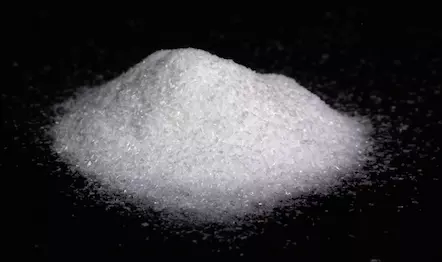IUPAC Name
Diazanium Sulfate
Cas Number
7783-20-2
HS Code
3102.21.00
Formula
(NH4)2SO4
Appearance
White Crystalline Powder
Common Names
Diammonium Sulfate, Dolamin
Packaging
25 kg bag, 40 kg net PP woven bag with PE liner
Brief Overview
Ammonium sulphate is an inorganic salt with the chemical formula (NH4)2SO4. Ammonium sulphate has various industrial applications but should also be handled carefully as it can be highly hazardous to humans. Its primary use is as a fertilizer for agriculture, containing 21% nitrogen and 24% sulphur. Ammonium sulphate occurs in nature in the form of a mineral called mascagnite. Mascagnite is a rare mineral and is present in volcanic fumaroles and coal fire dumps.
Manufacturing Process
Ammonium sulphate is prepared by treating ammonia with sulphuric acid. The chemical reaction is written as:
2NH3 + H2SO4 → (NH4)2SO4
Another method of preparing ammonium sulphate is adding gypsum salt to an ammonium carbonate solution. Calcium carbonate and ammonium sulphate are the products of the reaction. The calcium carbonate is precipitated from the mixture, leaving an ammonium sulfate solution behind.
Food Industry
Ammonium sulphate is used as an acidity regulator in flour and bread, and the food grade ammonium sulphate is recognized as safe by the US FDA and the European Union.
Agriculture Industry
Ammonium sulphate is used as a fertilizer for crops grown on alkaline soil. When ammonium sulphate is added to alkaline soil, ammonium ions are released along with a small amount of acid, which lowers the pH of the soil. Apart from this, it also acts as a nitrogen source for plant growth.
Horticulture Industry
Ammonium sulphate is used in horticulture as a spray adjuvant for water-soluble insecticides, herbicides, and fungicides. Its function is to bind the iron and calcium cations that are present in the water.
Analytical Uses
Ammonium sulphate is used for purifying proteins by selective precipitation or salting out the protein from the solution, thus providing a simple way of fractionating complex protein mixtures.
Other Applications
Ammonium sulphate is listed as an ingredient for many US vaccines by the Centre for Disease Control.
